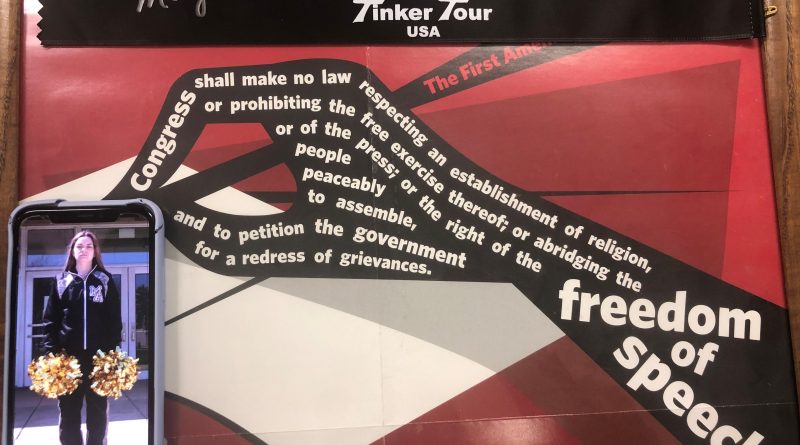A win for Student Speech in the Supreme Court
A recent Supreme Court case ruled for an ex-high school cheerleader who was punished after posting a vulgar rant on Snapchat, claiming that her school district violated her First Amendment right by suspending her from the cheerleading team.
Brandi Levy had failed to make the varsity cheerleading squad, but still managed to place a spot on the junior varsity team at just 14 years old. She vented her frustration through two Snapchat messages.
“F—school f—softball f—cheer f—everything,” Levy wrote in the first post that included a picture of herself and a friend sticking up their middle fingers.
This photo eventually made its way to the cheerleading coaches who suspended her for violating team rules by using “foul language and inappropriate gestures.”
The Supreme Court ruled in 1969 that public schools have the ability to regulate student speech only if disrupts the operation of the schools.
The Supreme Court ruled 8-1 in Levy’s favor, ruling that the district had overstepped its boundaries by suspending Levy.
“If something happens outside of the school day and it doesn’t affect a direct path to students, we have no jurisdiction. But, if a student comes to school and says ‘I’m feeling bullied and it started online,’ that’s where we begin to take action. What we look for is a nexus between home and school. Anytime that nexus is created, we not only have jurisdiction but an obligation to act,” said Principal Blaine Torpey.
The controversy regarding this case raises many questions whether or not this case would have been brought to court if a boy playing on the football team posted a negative comment about his coaches, rather than a girl on the cheerleading team.
“I think that it was unreasonable and unfair to suspend her because it was outside of school and everyone has the right to rant. If I was in her position, I would feel taken advantage of and would feel violated. I would also be a little embarrassed because I posted that picture for just my friends and I to see it, I definitely wouldn’t want it to be projected all over the internet,” said sophomore Justine Fong.


I think it is important that Levy’s school district was condemned by the Supreme Court, but it is a little too close for comfort that they didn’t say this can never happen. It seems like a potential opening to take away students’ free speech in the future, which is really scary.
Also, the point of how this would be handled if it was a football player instead is really interesting. I hadn’t even thought about that, but it probably would have been a very different situation. *sigh*